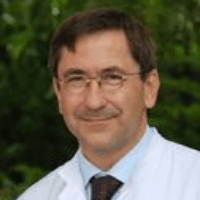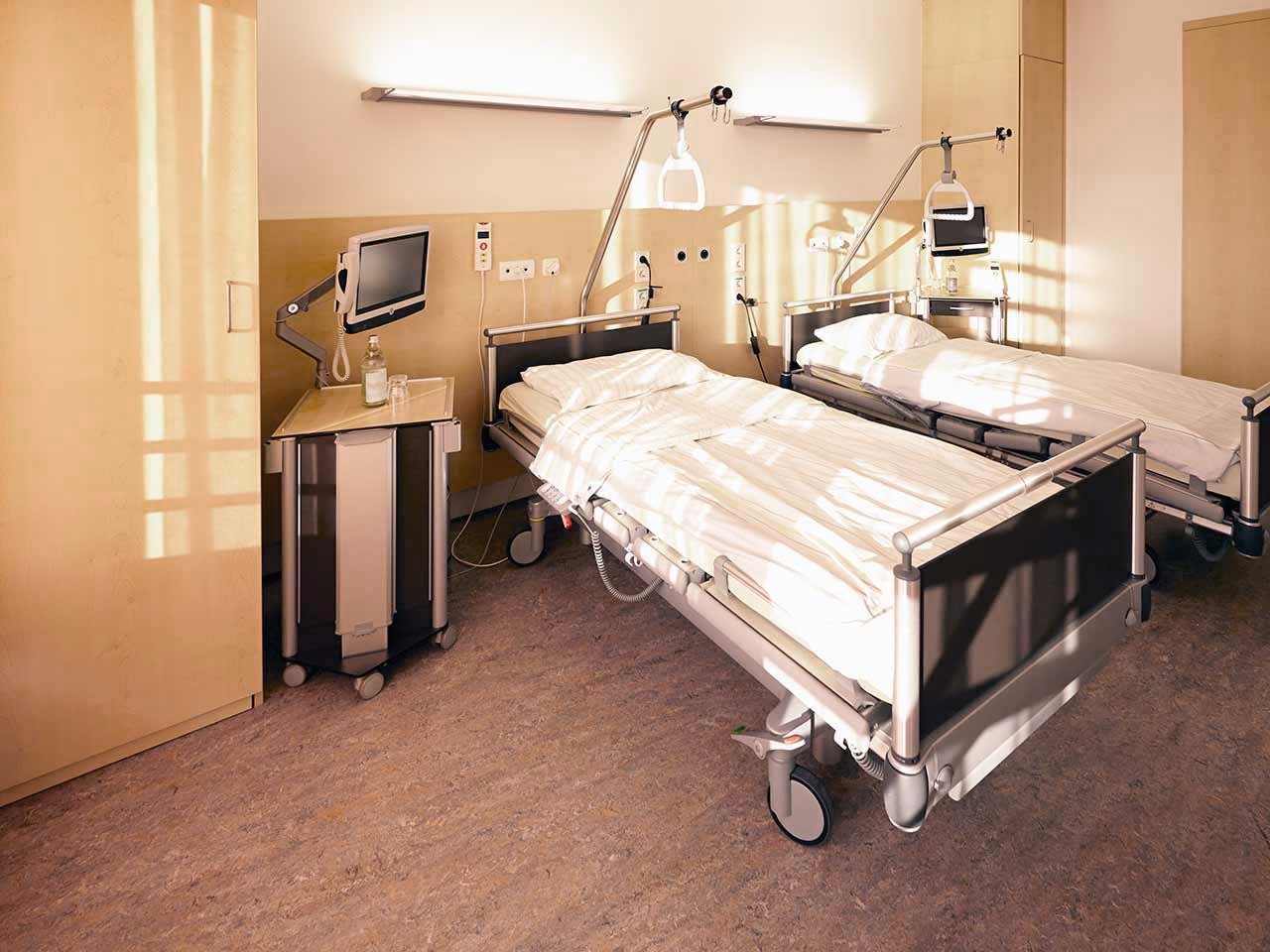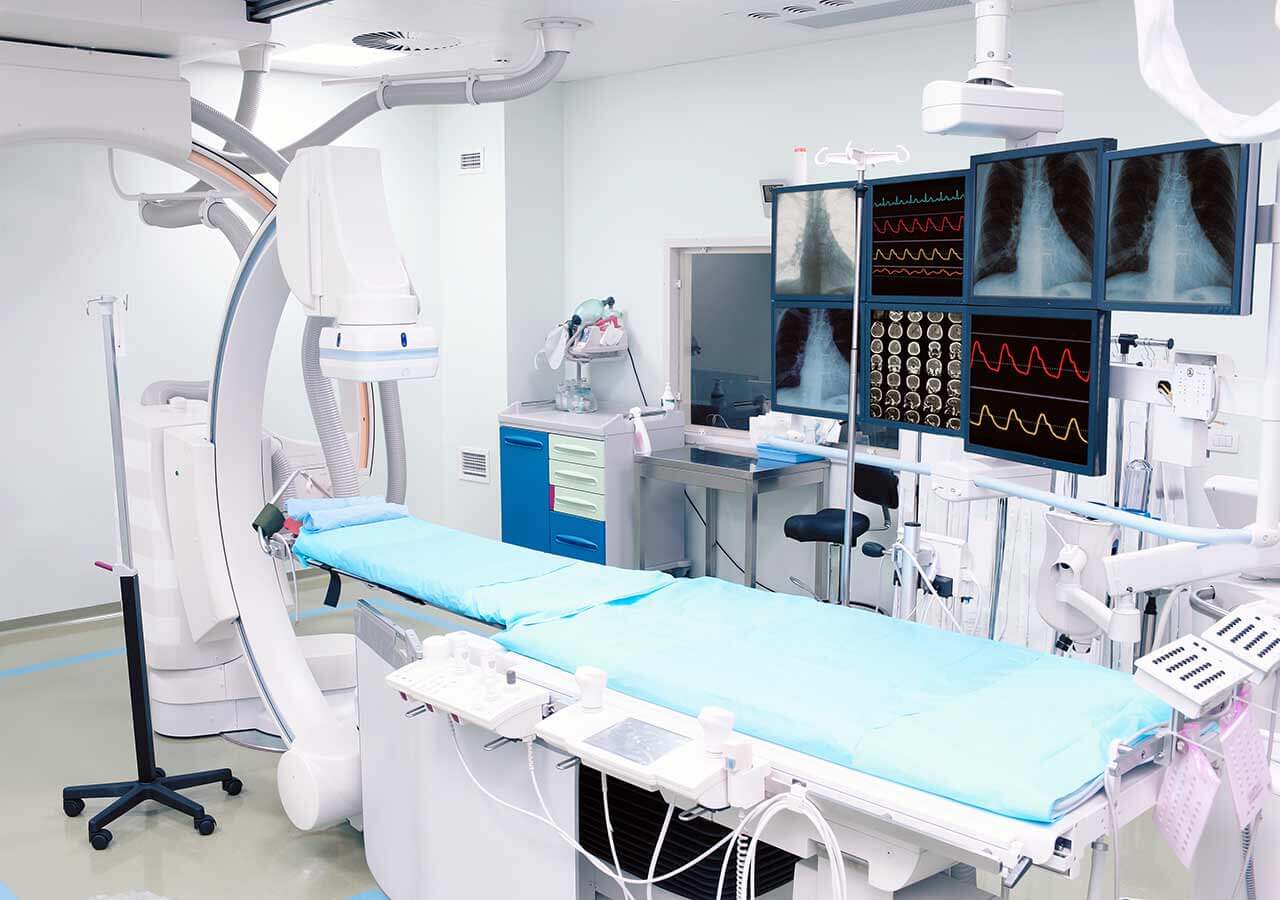
The program includes:
- Initial presentation in the clinic
- clinical history taking
- review of medical records
- physical examination
- laboratory tests:
- complete blood count
- general urine analysis
- biochemical analysis of blood
- TSH-basal, fT3, fT4
- tumor markers
- inflammation indicators
- indicators of blood coagulation
- CT scan / MRI of the abdomen and retriperitoneum
- abdominal and retroperitoneal ultrasound scan
- 1 course of chemotherapy
- nursing services
- consultations of related specialists
- treatment by head doctor and leading experts
- explanation of individual treatment plan
How program is carried out
During the first visit, the doctor will conduct a clinical examination and go through the results of previous laboratory tests and instrumental examinations. After that, you will undergo an additional examination, including laboratory assessment of liver and kidney function, ultrasound scan. Based on the received results, the doctor will elaborate the chemotherapy regimen. If necessary, related medical specialists will be involved in the elaboration of a treatment regimen (tumor board).
Chemotherapy is carried out as the inpatient procedure, with mandatory admission to the hospital. After the placement of a venous catheter, you will stay in a comfortable ward. An infusion system will be connected to the catheter, through which the required drug or a drug combination will be administered. All drugs are administered by intravenous drip, slowly, so the total duration of the infusion can be up to several hours. All this time, doctors and nurses will monitor your health condition closely.
After the course of chemotherapy, you will stay under medical supervision in the ward for a few more hours. After the completion of the chemotherapy course you will receive the medical report with detailed recommendations regarding further treatment. In the future, you will be able to have a distant consultation with your attending physician and schedule the next course of chemotherapy, if necessary.
Required documents
- Medical records
- MRI/CT scan (not older than 3 months)
- Biopsy results (if available)
Service
You may also book:
 BookingHealth Price from:
BookingHealth Price from:
About the department
According to the Focus magazine, the Department of Pediatric and Adolescent Medicine at the University Hospital Jena ranks among the top German hospitals specializing in diabetes treatment!
The department offers the full range of highly specialized methods for the diagnostics and treatment of acute and chronic pediatric diseases. The department's focuses include general pediatrics, pediatric oncology and hematology, neonatology and intensive care. The department specializes in perinatal medicine, pediatric oncology and stem cell transplantation, treatment of epilepsy, pediatric nephrology, diabetology, endocrinology, treatment of metabolic disorders, etc. The department has DIN EN ISO 9001 certification and it is the only University Pediatric Center, which provides maximum care for children and adolescents up to 20 years in Thuringia. The department is headed by Prof. Dr. med. James Friedrich Beck.
The department has advanced experience in the field of general pediatrics and all specializations in this field. For example, it successfully treats congenital and acquired diseases of the respiratory tract and lungs, endocrine glands, liver, gallbladder and pancreas, gastrointestinal tract, vascular anomalies, hematological diseases, etc. Special attention is paid to the diagnostics and treatment of cardiovascular diseases in children of all age groups. In the field of pediatric oncology, the department specializes in the treatment of leukemias, brain and spinal cord tumors, autonomic nervous system, malignant diseases of the lymph nodes, kidneys, musculoskeletal system, liver, hormone-producing glands, rare tumors. There is provided the outpatient counselling for the patients with kidney diseases, cardiac diseases and congenital heart defects, lung diseases, cystic fibrosis, etc.
In addition, the department offers the full range of intensive care services. The specialists have the cutting-edge heart-lung machines, continuous positive airway pressure (CPAP) devices, NO-therapy devices, as well as the very latest diagnostic and therapeutic methods, including the implantation of central venous catheters, ultrasound brain diagnostics, bronchoscopy (in collaboration with the Department of Pediatric Pulmonology), etc. In addition, the department's specialists have all the capabilities of modern perinatal medicine, which deals with the diagnostics and treatment of diseases during the perinatal period.
The diagnostic and therapeutic range of the department includes the following options:
- General pediatrics
- Congenital and acquired diseases of the lungs and respiratory tract
- Congenital and acquired diseases of the endocrine glands (thyroid, parathyroid glands, adrenal glands, insular part of the pancreas)
- Congenital and acquired diseases of the liver, gallbladder and pancreas
- Congenital and acquired diseases of other gastrointestinal organs
- Congenital and acquired vascular anomalies
- Congenital and acquired kidney diseases
- Congenital and acquired metabolic disorders
- Congenital and acquired immunodeficiency disorders
- Congenital and acquired infectious and parasitic diseases
- Kidney failure
- Symptomatic treatment for chromosomal disorders
- Neurometabolic and neurodegenerative diseases
- Congenital and acquired neuromuscular diseases
- Care for patients before and after organ transplantation
- Pediatric psychology
- Pediatric oncology
- All types of leukemia
- Brain and spinal cord tumors
- Tumors of the autonomic nervous system
- Malignant diseases of the lymph nodes
- Kidney cancer
- Musculoskeletal tumors
- Liver cancer
- Tumors of the hormone producing glands
- Rare types of tumors
- Pediatric hematology
- Neonatology / pediatric emergency care
- Neonatology
- Diagnostics and treatment of preterm and full-term newborns
- Perinatal Center
- And other diagnostic and therapeutic options
Curriculum vitae
Education and Professional Experience
- 1980 - 1988 Study of Medicine and Biochemistry at the Free University of Berlin.
- 1985 - 1988 Writing of PhD thesis.
- 1988 Admission to medical practice (approbation).
- 1989 Title of Candidate of Medical Sciences.
- 1989 - 1990 Advanced training in General Pediatrics at the University Hospital Tuebingen.
- 1990 - 1991 Neonatology, Department of Intensive Care in Newborns.
- 1991 - 1992 Pediatric Cardiology, Department of Pediatric Intensive Care.
- 1992 - 1993 Neuropediatrics, Developmental Neurology.
- 1994 - 1995 Pediatric Hematology, Oncology and Stem Cell Transplantation.
- 1995 Certified Pediatrician.
- 1996 - 1999 Senior Physician (Pediatric Hematology, Oncology and Stem Cell Transplantation, Tuebingen).
- 1989 Doctoral thesis defense.
- 1999 - 2007 (C3) Professor and Head of the Department of Pediatric Oncology and Hematology at the Clinic for Pediatric and Adolescent Medicine, University of Greifswald.
- 2000 - 2002 Deputy Dean of the Greifswald Medical School.
- Since 2007 (W3) Professor and Director of the Department of Pediatric and Adolescent Medicine at the University Hospital Jena.
- 2014 President of the Congress of the 110th Convention of the German Society of Pediatrics and Adolescent Medicine in Leipzig.
Certificates
- 1988 Admission to medical practice.
- 1995 Certified pediatrician.
- 2002 Specialized Hematologist and Oncologist in Pediatric and Adolescent Medicine.
- 2008 Permission for certification of pediatricians and additional specialization in Hematology and Oncology in Pediatric and Adolescent Medicine.
Membership in Professional Societies
- German Society of Pediatrics and Adolescent Medicine.
- Society for Pediatric Oncology and Hematology.
- American Cancer Research Society.
- European Working Group on Bone Marrow Transplantation
- German Working Group on Gene Therapy.
- Thuringian Cancer Society.
- Commission Member of the Central Research Group on Soft Tissue Sarcomas (CWS).
Photo of the doctor: (c) Universitätsklinikum Jena
About hospital
According to the prestigious Focus magazine, the University Hospital Jena regularly ranks among the top German medical facilities!
The hospital has positioned itself as a multidisciplinary medical facility with a long history of more than 200 years. Since its foundation, the hospital has been constantly developing and modernizing, thanks to which nowadays it offers patients the highest level of treatment in Germany based on the use of innovative technologies and the very latest therapeutic techniques. The hospital consists of 26 specialized departments and 25 research institutes. It treats more than 53,600 inpatients and about 274,000 outpatients every year. The staff of the hospital includes more than 5,600 competent doctors.
The extensive resources of the university hospital, high treatment standards, and the introduction of new research developments provide first-class treatment in Germany meeting the stringent international standards. The hospital has an excellent reputation not only in Germany, but also far beyond its borders, due to which it accepts a large number of foreign patients for the diagnostics and treatment.
Despite the technical progress and the availability of accurate computerized systems, the patient’s physical health and emotional state is the main value of each employee of the hospital, since some diagnoses cause emotional distress in patients. The doctors of the hospital believe that the key to a successful result is a comprehensive and individual approach, so they spend a lot of time talking with patients, listen carefully to all their wishes and support at all stages of the therapeutic process. All this in combination with high-precision diagnostic techniques and the very latest types of therapy forms a solid basis for the achievement of an optimal treatment result.
Photo: (c) depositphotos
Accommodation in hospital
Patients rooms
The patients of the University Hospital Jena live in comfortable single and double rooms made in a modern design. Each patient room is equipped with an ensuite bathroom with shower and toilet. The room has enough space to store personal belongings, as well as a table and chairs for receiving visitors. A bedside table can be converted into a table so that patients can eat right in their bed. Each room has a TV, and there is also access to the Internet. In addition, the hospital offers enhanced-comfort rooms.
Meals and Menus
The patient and his accompanying person have a daily choice of three menus. If for some reason the patient does not eat all the foods, he will be offered an individual menu. Please inform the medical staff about your dietary preferences prior to the treatment.
Further details
Standard rooms include:
Religion
Religious services are available upon request.
Accompanying person
During the inpatient program, an accompanying person may stay with you in a room or at the hotel of your choice.
Hotel
During the outpatient program, you can live at a hotel of your choice. Managers will help you to choose the most suitable options.





